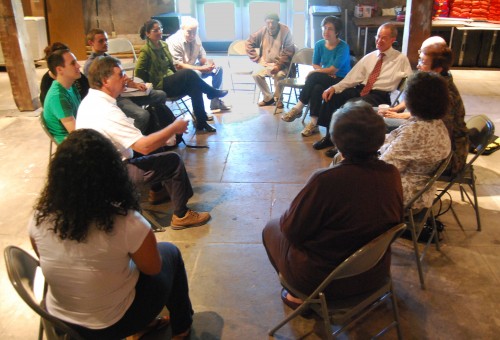
Communication Erosion: Thibodaux group keeping Cajun-French dialogue alive
May 9, 2012T-PT makes it 5 in a row
May 9, 2012A friend asked this week why those who should be working are out on disability, while those with obvious physical limitations remain on the job rather than collect government assistance.
The answer is multi-faceted and involves considering good intentions gone awry, employer fears of litigation, the manner in which disabilities are measured, and basic social structures.
The Americans With Disabilities Act of 1990 opened doors of opportunity and eliminated a great deal of discrimination against the physically challenged. It has also been abused with lines blurred between meaningful cases and manipulated complaints.
When the ADA was enacted business owners were rightfully instructed to correct discriminatory practices. In some cases, however, employers began practicing silent prejudice by not hiring anyone with a claimed or obvious disability for fear that a lawsuit over any minor infraction might accompany the employee.
Sources within the Social Security Disability Insurance program admit that medical standards from the 1950s are still in place to determine disability, although health advancements and technology provide tools to move beyond previously limiting physical conditions.
At the heart of it all, our culture has shifted in attitude away from following John F. Kennedy’s direction to ask not what their country can do for them, to Barack Obama warning that if he is not re-elected Americans will have to become self-reliant.
According to the U.S. Census Bureau, more than 10 percent of working age Americans, those between the ages of 18 and 64, are documented as disabled. In Louisiana that category total is 15 percent.
In the Tri-parish region St. Mary Parish lists 18 percent of its working age population as disabled. That number increases to 19 percent in Terrebonne Parish and 20 percent in Lafourche Parish.
We believe there is a moral obligation to assist the truly disabled, meaning those with conditions severe enough to prevent them from functioning with any productive capacity in modern society and especially those and their dependents who have literally given limbs or lives in service to their country.
We endorse educating workers who might not be able to perform tasks they once did. With that we believe those collecting any form of disability assistance must be required to undergo training that puts them back to work in a trade or profession they would be physically able to perform.
The genuinely disabled have made great strides to no longer be considered outcasts. It is now time to stop the practices of those who consider the label of disability as an easy way out.




